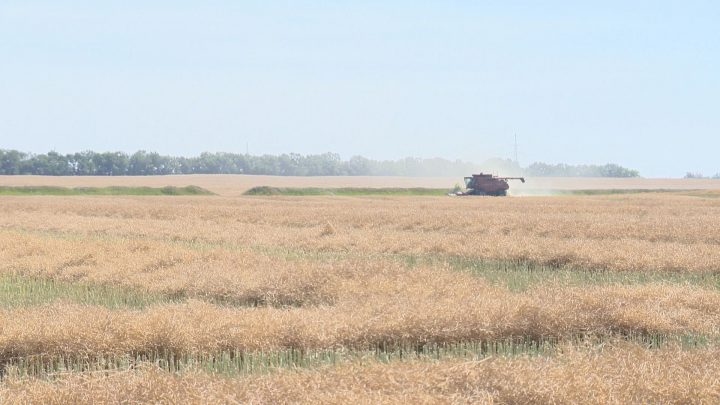They are at the heart of what makes this province and country so great, farms that have been handed down from generation to generation.

There are now fears that newly proposed federal tax changes could result in the death of those very operations and time is running out for producers.
READ MORE: Federal government aiming to close income tax loopholes
Corey Loessin’s farm outside of Radisson, Sask., has been in his family since 1905. The newly proposed tax reforms by the Trudeau government could have far reaching implications for the operation, his son and future generations to come.
“The implications of transfer of the farm, that’s what really concerns us,” Loessin said.
“We also have a daughter that is not involved in the farm but ultimately should share in part of the estate when it gets to that.”
The massive changes are to eliminate any loopholes wealthy Canadians have used to avoid paying their fair share but the net that’s been cast may be too broad and will blindside farm families, who will be hit hard.
“It’s going to make it harder to accumulate wealth and to in a tax efficient manner transfer that wealth to other families than the person that is actually farming,” Clint Gifford, tax specialist and partner at Virtus Group in Saskatoon, said.

Get daily National news
READ MORE: Farmers, doctors lead blowback against proposed tax changes
Gifford who has spent the bulk of his summer reviewing the changes said essentially they will make it more difficult to use income from a farm to support their family and that there will be higher tax rates applied to everyone except people actively working on the farm.
Some examples Gifford supplied included spouses that don’t work on the farm or children who help out and are going to school.
- Toronto Stock Exchange plunges due to massive precious metals sell-off
- Bombardier warns of ‘significant impact’ to travellers from Trump’s threat
- Can Trump decertify aircraft? What experts say amid Bombardier threat
- Stepfather of two missing N.S. kids charged with sexual assault of adult, forcible confinement
Todd Lewis, president of the Agricultural Producers Association of Saskatchewan, said he has yet to hear from a farmer or farm group pleased with these proposed changes.
“At the end of the day it really doesn’t matter if that land was brought into the farm at a dollar an acre and it’s worth $3,000 or $4,000 presently,” Lewis said.
“If we’re going to tax the value of that land every time it changes generations, it won’t be long before there won’t be any land left to farm for that operating unit.”
Fuelling farmer’s frustrations is that only 75 days was aside for consultations so they could voice their concerns surrounding these changes.
The process was officially launched in July and will end Oct. 2, leaving little time for farmers to wrap their heads around the changes with many still in the field during harvest.
“The timing is not good at all as far as getting adequate feedback from people this is going to affect,” Loessin said.
REALITY CHECK: Will closing tax loopholes for the rich really help the middle class?
Some producers have now taken to Twitter asking the government directly to pull the plug on these plans.
Since the changes are so technical and fast approaching, they will throw a huge wrench in operations where farmers have been succession planning for their entire lives.
“You’re faced with the reality of giving a 25-year-old kid a massive amount of the value of your farm to avoid tax or having some control over that and then having to pay the tax when you’re ready to give it to them,” Gifford said.
The Canadian Federation of Agriculture is now calling for all farmers who could be severely impacted by the tax proposals to reach out to their member of parliament and request that they rethink this move.









Comments